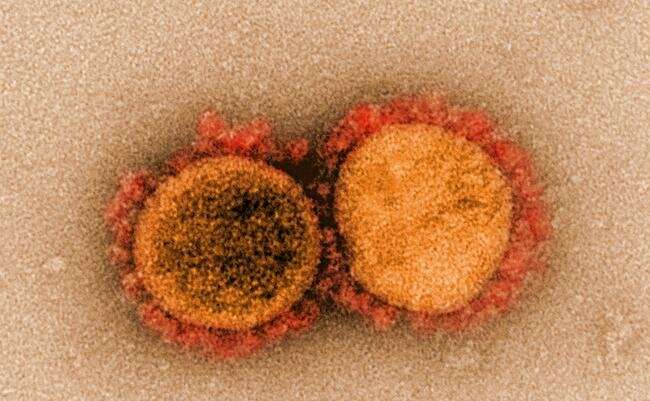Study reports a novel broad-spectrum antiviral drug class with activity against SARS-CoV-2

The COVID-19 pandemic and resurgence of infections by other respiratory RNA viruses such as respiratory syncytial virus (RSV) in children has caused an urgent need for the development of orally available broad-spectrum antiviral therapeutics.
In a study published online on Dec. 2 in Science, researchers in the Institute for Biomedical Sciences at Georgia State University report a new candidate ribonucleoside analog, 4′-fluorouridine (4′-FlU), that has potent antiviral activity against SARS-CoV-2, RSV and other respiratory RNA viruses in cell culture, human organoids and different animal models when administered orally once-daily.
“Mechanistically, we show that 4′-FlU is in a different class from molnupiravir that is currently considered for regulatory approval,” said Dr. Richard Plemper, senior author of the study, Distinguished University Professor and director of the Center for Translational Antiviral Research at Georgia State. “4′-FlU does not act as a mutagen but induces termination of the viral polymerase, aborting replication of the viral genome. There is an urgent need to expand the therapeutic arsenal against SARS-CoV-2 and 4′-FlU has strong developmental promise as a companion drug.”
In the study, 4′-FlU was tested against different SARS-CoV-2 variants of concern in ferrets, which have emerged as a leading model for drug testing, and against respiratory syncytial virus in mice. The researchers found that this drug potently blocked SARS-CoV-2 replication including the gamma and delta variants in the ferret, and efficiently suppressed RSV burden in mouse lungs.
“We are excited that 4′-FlU is the only orally available antiviral candidate currently developed against SARS-CoV-2 that is active when given once-daily,” said Dr. Julien Sourimant, first author of the study and a researcher in Dr. Plemper’s lab in the Institute for Biomedical Sciences, “which should be a major asset in ensuring outpatient compliance.”
This research on 4′-FlU emerged from a collaboration of the team at Georgia State University with researchers at Emory University and the Texas Biomedical Research Institute. The study was funded by public health service grants from the National Institutes of Health/National Institute of Allergy and Infectious Diseases to Georgia State University.
Source: Read Full Article
